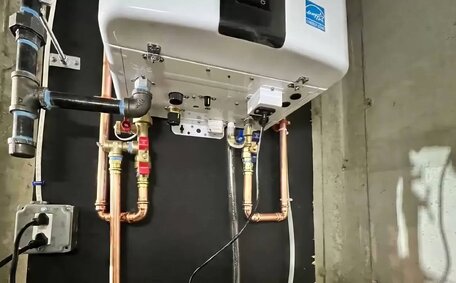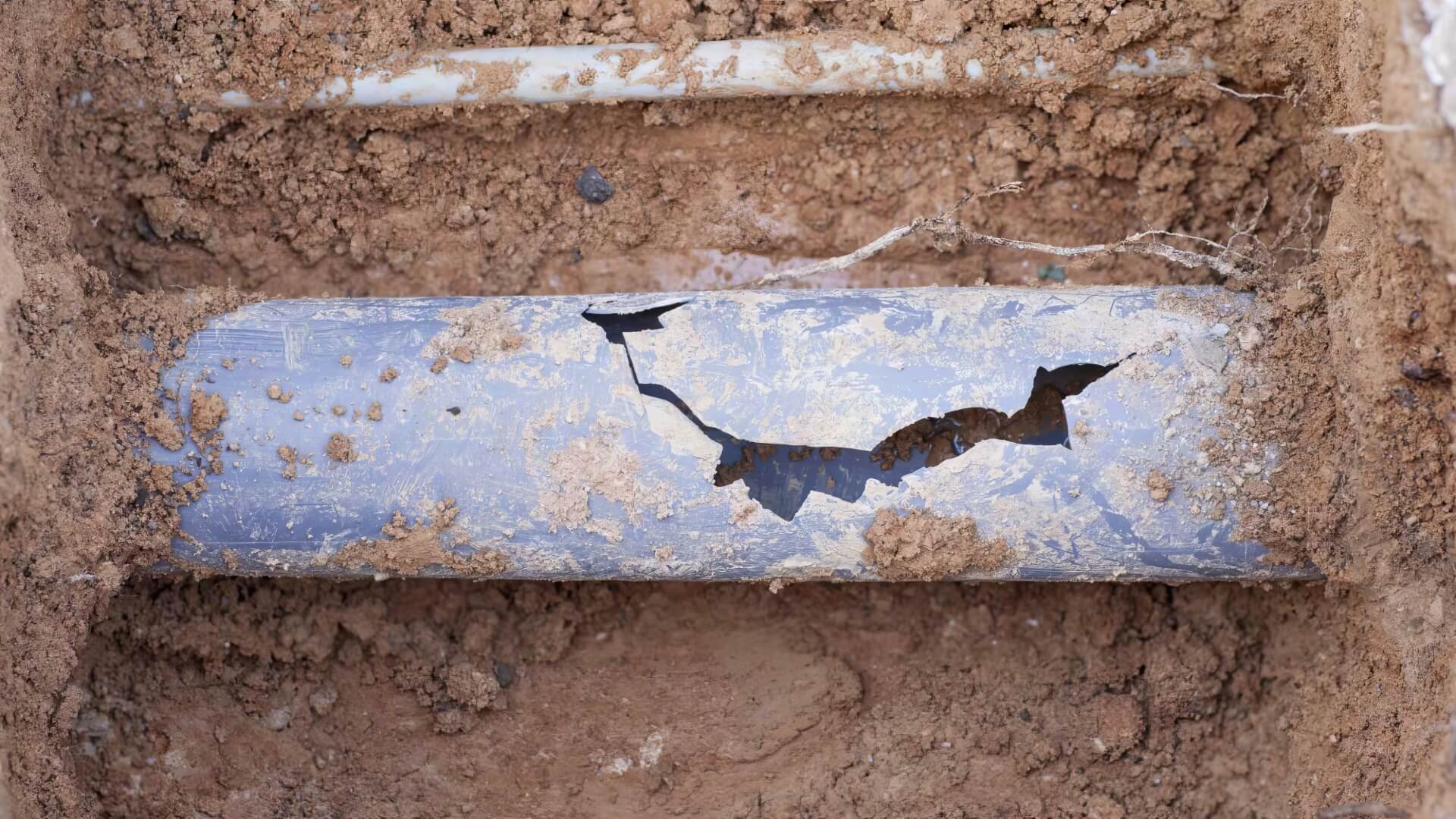Understanding the risks and dangers of gas leaks
Gas leaks in your home are serious hazards, potentially causing fires, explosions, and carbon monoxide poisoning. Natural gas is usually undetectable to the senses, being invisible and odourless, which is why carbon monoxide (CO) leaks can go unnoticed without appropriate safety measures. To aid in rapid leak detection, mercaptan is added to natural gas to impart a distinctive rotten egg smell.
In the event of a national gas emergency, such as carbon monoxide exposure, it’s critical to recognise symptoms and immediately contact local authorities for help. Prolonged exposure can result in unconsciousness or even death due to its severe effects on the body. Additional hazards entail property loss from fires, where fire extinguishers play a pivotal role, reinforcing how vital it is to thwart such events as a priority in gas safety.
Developing robust strategies to prevent gas leaks and an emergency response plan is essential for ensuring safety at home and in the workplace. Through ongoing inspections of gas lines, and by using a leak detector, training staff, and leading public awareness campaigns, the risks associated with gas leakage can be significantly reduced, ensuring health safety.
Inspecting gas appliances and fittings regularly
Applying safety measures, such as regular audits with leak detectors to check gas leaks for all gas kit, is a step that can crucially prevent leaks within your property. Certified technicians should look for the signs of a gas leak, such as system wear, corrosion, loose fittings, or damage to ensure there are no places where gas could escape, ensuring thorough checks.
Annual safety inspections that include a gas leak test to examine appliance units and meters are a must. Our licensed professionals conduct methodical checks for leaks on gas stoves, ovens, water heaters, furnaces, and gas meters, along with other system elements. We’ll repair or replace old gas fittings and any deteriorated parts to nip potential leaks in the first place.
When it comes to safeguarding Sydney homes and businesses, it’s important that your natural gas systems receive regular inspections and upkeep by our Minchinbury Plumbing team for essential protection. We have the expertise and tools to detect gas leaks by locating a hissing sound, which is how one can find a potential leak, ensuring thorough detection and prevention.
Installing gas detectors and carbon monoxide monitors
Gas leak and carbon monoxide detectors are vital for swiftly identifying hazardous conditions before they exacerbate. Install these critical safety devices near gas appliances or heating systems in any home or workplace to detect leaks.
Portable gas detectors allow for flexible inspection across your property, and fixed systems deliver constant monitoring with fixed sensors.
Installation of monitors in sleeping quarters is crucial, as the odourless carbon monoxide can be lethal.
In your workplace, especially in industrial settings, a comprehensive gas detection system is crucial for safeguarding employees in high-risk environments, so call gas experts for regular checks. Continuous scrutiny and accurate sensor calibration are essential for preventing gas disasters that can occur suddenly. For households, Minchinbury Plumbing can assist with selecting appropriate monitors, ensure their strategic placement near your gas meter, and offer services for conducting periodic maintenance.
Adopting reliable gas and carbon monoxide detection measures enables the swift identification and mitigation of natural gas leaks, preventing harm. Early alert systems add an invaluable layer of protection for properties with natural gas.
Taking immediate action during a gas leak
Suspected gas leaks in your home require immediate expert assistance to safeguard residents from potential danger. As safety should be the top priority, comprehending the gas shutoff procedure is a critical first step to take:
- If a gas leak is suspected, immediately evacuate the area, call experts, and do not return until it is safe.
- Avoid using electrical devices or switches, which could ignite accumulated gas and cause an explosion.
- If it’s safe, turn off the gas supply at the main valve to prevent further gas leakage in your home.
- Swiftly open all doors and windows to help dissipate gas and reduce the potential impact of a leak.
- Move to a safe location and call the gas company’s safety authorities, followed by Minchinbury Plumbing’s emergency service for assistance.
- Do not re-enter the property or attempt to fix the issue on your own.
Our team of licensed technicians is prepared to be rapidly dispatched to secure your safety by shutting off the gas supply, to conduct leak detection, and perform any necessary repairs. In a gas leak situation, it’s critical to promptly call professional plumbers, and our team is ready to offer guidance and assistance.
Creating emergency response and evacuation plans
Heeding safety tips prevent poor outcomes when a gas emergency occurs is crucial for your house as they collaborate with their gas provider to devise response strategies. We suggest contacting your gas supplier for detailed maps of step-by-step evacuation procedures, including escape routes and safe meeting points.
Regularly practising drills ensures preparedness for potential gas leaks. Post emergency contact details, including Minchinbury Plumbing’s 24/7 hotline, for swift response to leaks.
It is important to have HVAC professionals train your staff on the correct responses to system safety issues. Review and update plans periodically, training any new occupants to boost preparedness. Advance preparation and awareness are crucial as gas leaks can rapidly escalate into emergencies.
Our team is available to help develop customised response plans for your home or workplace. Advance planning ensures a rapid and secure response to gas emergencies, effectively minimising risks.
Implementing preventative measures to avoid gas leaks
To prevent gas leaks, households and businesses should follow several key steps:
- Regularly inspecting and maintaining gas appliances, heaters, stovetops, pipes, and fittings is key to preventing gas leaks. Repair or replace old or damaged components without delay to ensure safety.
- Ensure areas around gas appliances and lines are well-ventilated and unobstructed to allow gas fumes to dissipate.
- Ensure gas system installations, conversions, and alterations are carried out by qualified technicians for compliance with safety standards.
- Enhance security by equipping your space with UL-listed gas detectors, featuring audible and visual alarms, to promptly alert occupants of leaks around furnaces, water heaters, and sleeping areas.
- Display the gas emergency number prominently among contact information. Ensure all residents or staff understand gas leak response procedures.
- It’s important to inform your family and employees so they understand the signs gas leak presents; if they smell gas or hear hissing noises from pipes, these are critical indicators.
By instituting preventative measures and ensuring readiness in emergency response for commercial space and homes alike, safety is greatly enhanced with minimised risks from gas leaks. For assistance inspecting appliances or creating tailored response plans, contact our team at Minchinbury Plumbing on 1300 349 338.
Hiring certified professionals for installations and repairs
When it comes to gas appliances and fittings, it’s imperative to hire a licenced gas fitter for installations, repairs and inspections. Our certified experts at Minchinbury Plumbing adhere to strict safety regulations, making your gas safe and ensuring full compliance to protect homes and workplaces.
With advanced training and years of hands-on experience, we can expertly install and maintain complex systems that use natural gas while following best practises. We always verify what to do when checking correct pressure readings and for leaks, ensuring proper ventilation for optimal safety.
As Sydney’s trusted provider, Minchinbury Plumbing offers reliable emergency repairs, routine maintenance, and upgrade installations for seamless gas system performance. For total peace of mind, our qualified technicians get the job done right.
Educating households on gas safety protocols
It’s essential for family safety to educate all household members, including children, on preventing natural gas leaks and the corresponding safety measures.
Make certain everyone can identify the rotten egg odour of gas and is aware of the safety procedures. Keep an emergency contact list with phone numbers for your utility and Minchinbury Plumbing, emergency services, and gas utilities prominently posted. Conduct regular reviews of procedures, testing knowledge with quiz games. Assign household members responsibilities, which can include how to use your main valve to turn off gas. Ensure that visiting guests, tenants, or short-term renters are instructed on how to operate the shutoff valve to cut off the gas supply during an emergency. Make certain everyone can identify the rotten egg odour of gas and is aware of the safety procedures. Households should take advanced planning seriously, cultivating awareness and practice drills to act swiftly if leaks occur, thus avoiding harm.






